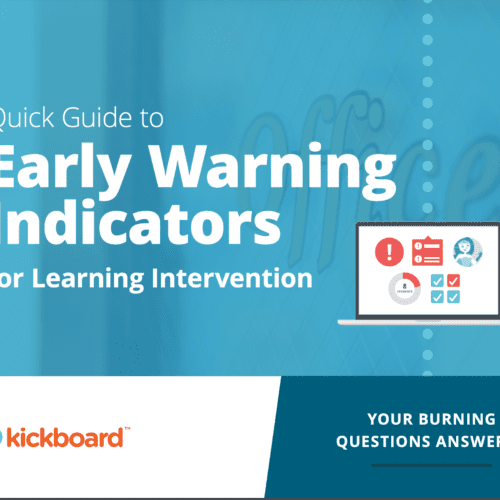
Tough times like these can induce a knee jerk reaction in many businesses: slash costs, maybe lower prices, and then hunker down and wait for things to return to normal. But that’s like turning a sailboat toward the shore during a sea storm. It may feel like a good idea, but you’re likely to run your boat(aka your business) into the ground.
I’m sharing two marketing principles that you can use to help guide you. The first one will focus on content marketing because that’s my thing, but you can apply it whatever resources you have.
Marketing Principle #1: Think “What can I Do to Help”
Even when times are good, content marketing should be centered around being helpful. So, when a crisis like this hit, many astute content marketers were able to spot an opportunity to create helpful content.So, when a crisis like this hit, many astute content marketers were able to spot an opportunity to create helpful content. Below are a few examples:
- Linda Formicelli, founder of content studio Hero’s Journey Content, LLC created a PDF titled The Business Case for Content During COVID-19 which provides marketing departments with talking points for justifying their content programs and budgets.
- Martech Advisor published a post titled “20 Expert WFH Tips for Marketers in the Coronavirus (COVID-19) Outbreak” to help marketers and sales teams work efficiently.
- Several businesses that create courses took down the paywalls around all or sections of their course libraries so members of their Facebook communities or mailing lists could work on professional development while stuck at home.
This marketing principle works because helping out prospects and customers deepens your relationship with them. When you create helpful content, you’re showing that you know what you’re talking about. Plus, you’re also proving prospects and customers that they can rely on you. People do business with people they like and trust.
If you’re trying to think of content topics that would be useful to your clients, below are 15 ideas, some of which you may be able to apply to your field of expertise:
- Alleviating short-term cash management challenges
- How to review vulnerabilities in work/sales process, operations, and supply chains
- How to make a business more resilient to shocks
- Free resources for ______ during COVID-19
- Streamlining and scaling systems
- Going from onsite to remote activities (e.g., meetings, inspections, audits, conferences, etc.)
- Adopting a digital business model
- How to return business to scale
- Troubleshooting remote work programs
- Helping workers be productive while working remotely
- Reducing stresses related to working from home and social isolation (low worker morale impacts businesses negatively)
- Managing workers and evaluating their work performance remotely
- COVID-19-related trends you’ve observed
- Review of innovations and experiments, and which may become permanent
- Predictions about what the “new normal” will look like and guidance on how to prepare
Marketing Principle #2: Hone Your Strategies and Tactics to Do More During COVID-19
In belt-tightening times, marketing budgets are usually one of the business costs that get slashed. However, according to a 2009 Harvard Business Review article, “… increases in marketing spending during a recession have boosted financial performance throughout the year following the recession.”
So, automatically assuming that slashing marketing is the way to go is unwise. You’ll have to evaluate your particular situation. If you decide that cuts are indeed necessary, then, as the HBR article advises, “take a scalpel rather than a cleaver to the marketing budget.”
Firstly, you’ll have to determine which groups of prospects should be receiving the bulk of your marketing. Some industries are more likely than others to be buyers at this time. You may also have to consider pivoting to new markets.
Additionally, evaluate your current marketing tactics and strategies for effectiveness. Actually, this type of evaluation should happen regularly, but it’s really vital in times like these. If something isn’t working, stick a pin in it because you’ll need to also determine the following:
- Whether the theory behind your strategy was faulty
- Whether there were errors in preparing or implementing the marketing
- Whether the marketing strategy actually worked and your evaluation measures are flawed
But for now, you can place what you know works at the core of your current strategy. Hopefully, this will include content marketing. Helping customers understand the technologies that can enhance their business or knowledge base is an excellent way to build trust.
While you still want to bring in leads, consider focusing more on content for prospects who are further along the buyer’s journey (i.e., seriously thinking about making a purchase). Tough times make many prospects skittish buyers, so the ones who are serious about purchasing are extremely valuable.
So, while you’re marketing during COVID-19, ensure that serious buyers have everything they need to make a purchase decision in your favor. That means buyers guides and similar content should be updated and readily available.
Conclusion
These two marketing principles should form the basis of your strategy during these times. But if possible, throw in a little experimentation as well. Most people (me included) are sick of hearing that we’re living in unprecedented times, but this is indeed the case. Think outside the “pre-pandemic” box. At the same time, keep thinking “what can I do to help” in order to guide those marketing experiments. That way, you won’t stray into anything that’s tone deaf or smacks of opportunism.
Good luck navigating through the storm and stay safe.







